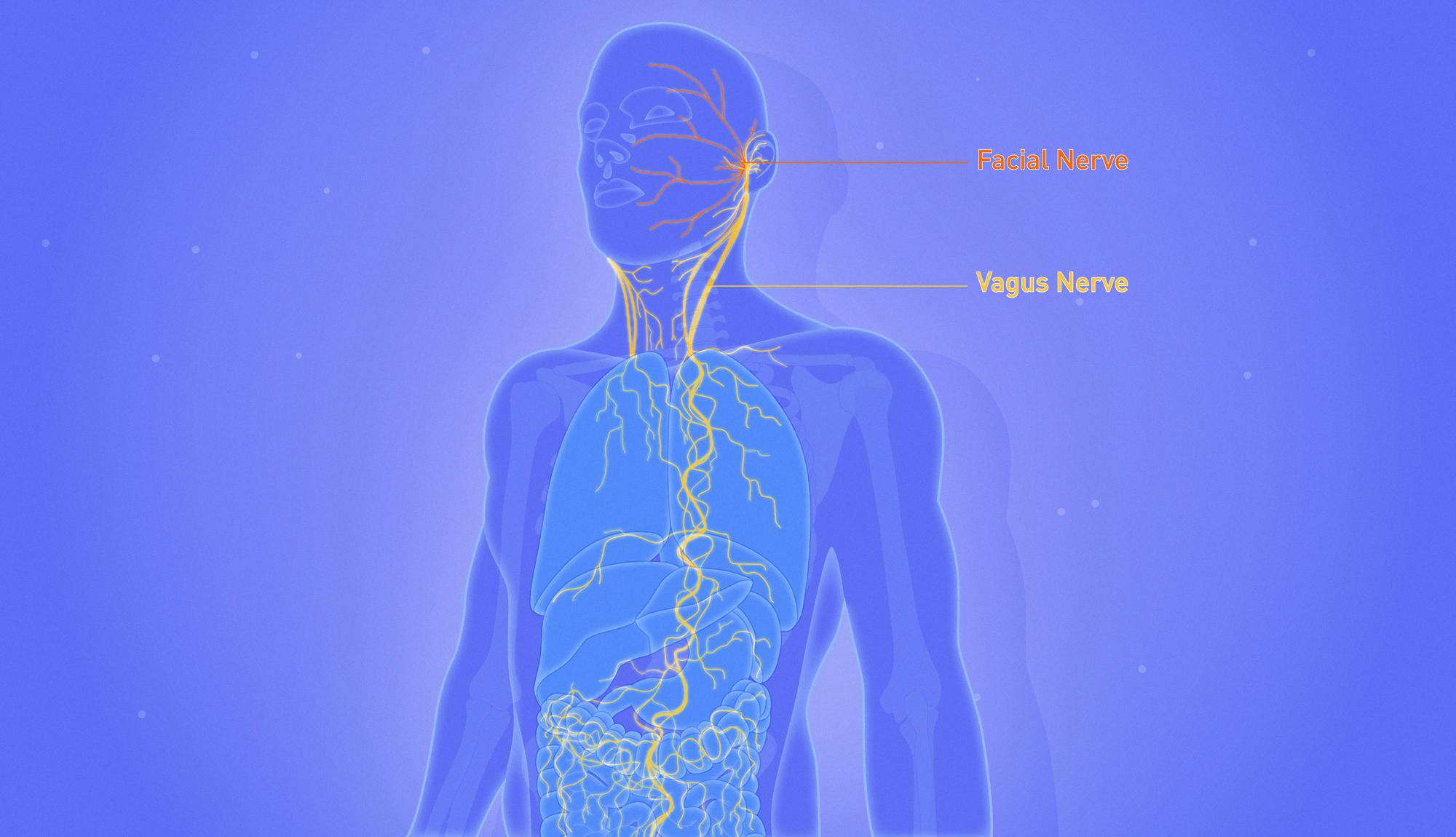The Vagus nerve is a critical nerve in the body that plays a crucial role in regulating various bodily functions. It is responsible for controlling the heart rate, digestion, and even breathing. However, when the Vagus nerve gets damaged, it can lead to a wide range of health problems.
Vagus nerve damage can be caused by several factors, including previous infections or inflammation, physical trauma, and psychological stress. Some of the common symptoms of Vagus nerve damage include neck pain, voice problems, brain fog, gut problems, and high or low blood pressure.
The good news is that in some cases, Vagus nerve damage is reversible. However, this depends on the severity and cause of the damage. In some cases, the nerve may heal on its own over time. However, in more severe cases, treatment may be necessary to restore normal nerve function.
One of the most effective ways to treat Vagus nerve damage is through vagal nerve stimulation. This involves using electrical impulses to stimulate the nerve and promote healing. There are various ways to do this, including implants, external devices, and even certain types of exercises.
Another way to promote healing is through lifestyle changes. For example, practicing stress-reducing techniques such as meditation and deep breathing can help reduce inflammation and promote healing. Additionally, maintaining a healthy diet and getting regular exercise can help improve overall nerve function.
Vagus nerve damage can be a serious condition that can lead to a wide range of health problems. However, with the rght treatment and lifestyle changes, it is possible to promote healing and restore normal nerve function. If you are experiencing any symptoms of Vagus nerve damage, it is important to seek medical advice as soon as possible.
How Do You Fix A Damaged Vagus Nerve?
The Vagus nerve is responsible for a variety of bodily functions and damage to this nerve can result in various health issues. While it may not be possible to completely fix a damaged Vagus nerve, thre are certain ways to stimulate and improve its function. Here are some methods that can be tried:
1. Gargling, singing, humming, coughing, laughing, chanting, chewing gum, and “OM-ing” can all stimulate Vagus nerve function.
2. Deep breathing exercises, such as slow, deep breathing or alternate nostril breathing, can help reset the Vagus nerve.
3. Acupuncture, massage, and chiropractic treatments may help stimulate the Vagus nerve and improve its function.
4. A healthy diet that includes anti-inflammatory foods, such as fruits, vegetables, and omega-3 fatty acids, may help reduce inflammation and promote nerve healing.
5. Regular exercise and stress-reducing practices, such as yoga and meditation, may also help improve Vagus nerve function.
It is important to note that these methods may not work for everyone, and it is essential to consult with a healthcare professional before trying any new treatments.

How Do You Know If Your Vagus Nerve Is Damaged?
When the vagus nerve is damaged, it can result in a variety of symptoms. Some common signs of vagus nerve damage include pain in the neck, voice issues, throat problems, increased heart rate, brain fog, abnormal blood pressure (either too high or too low), and gut issues. Other symptoms may include difficulty swallowing, nausea, vomiting, and fainting. In some cases, people with vagus nerve damage may also experience anxiety, depression, and other emotional changes. If you are experiencing any of these symptoms, it is important to speak with a healthcare provider for an accurate diagnosis and appropriate treatment.
How Did I Damage My Vagus Nerve?
Vagus nerve dysfunction can be caused by several factors. One common cause is a previous infection or inflammation that may have damaged the nerve. This could be due to conditions such as Lyme disease, autoimmune disorders, or viral infections.
Another cause of vagus nerve dysfunction is physical or psychological stress. Prolonged stress can lead to chronic inflammation wich can damage the vagus nerve. Additionally, physical trauma, such as surgery or injury, can also cause damage to the nerve.
Other possible causes of vagus nerve dysfunction include diabetes, alcoholism, and certain medications. It is important to consult with a healthcare professional to determine the underlying cause of your vagus nerve dysfunction and develop an appropriate treatment plan.
How Do You Reset Your Vagus Nerve?
The vagus nerve is a cranial nerve that runs from the brain to various organs throughout the body, including the heart, lungs, and digestive system. It plays a crucial role in regulating the body’s autonomic nervous system, which controls many of our bodily functions, such as heart rate, digestion, and breathing.
There are several ways to potentially reset or tone the vagus nerve. One popular method involves the use of cold therapy, such as submerging the face in ice water or applying an ice pack to the chest. This can stimulate the vagus nerve and help to promote relaxation and reduce inflammation.
Another approach is thrugh massage and acupressure techniques. Massaging the neck, specifically the area around the carotid artery, can help to stimulate the vagus nerve. Similarly, applying pressure to specific points on the ear, known as auricular acupressure, has been shown to have a positive effect on vagal tone.
Deep breathing exercises can also help to reset the vagus nerve. Slow, deep breaths can stimulate the vagus nerve and help to promote relaxation and reduce stress. Additionally, engaging in activities such as meditation and yoga can also help to promote vagal tone.
There are several techniques that can potentially reset or tone the vagus nerve, including cold therapy, massage and acupressure techniques, deep breathing exercises, and activities such as meditation and yoga.

Conclusion
The Vagus nerve plays a vital role in regulating many bodily functions and maintaining overall health. Damage to this nerve can lead to a range of symptoms, including pain in the neck, voice problems, heart rate irregularities, brain fog, and digestive issues. However, thre are various methods to stimulate and reset the Vagus nerve, such as gargling, singing, deep breathing, and other relaxation techniques. It is essential to address the root causes of Vagus nerve dysfunction, such as infections, inflammation, and stress, to prevent further damage and promote healing. If you suspect you may have Vagus nerve damage, it is recommended to consult with a healthcare professional for proper diagnosis and treatment.
